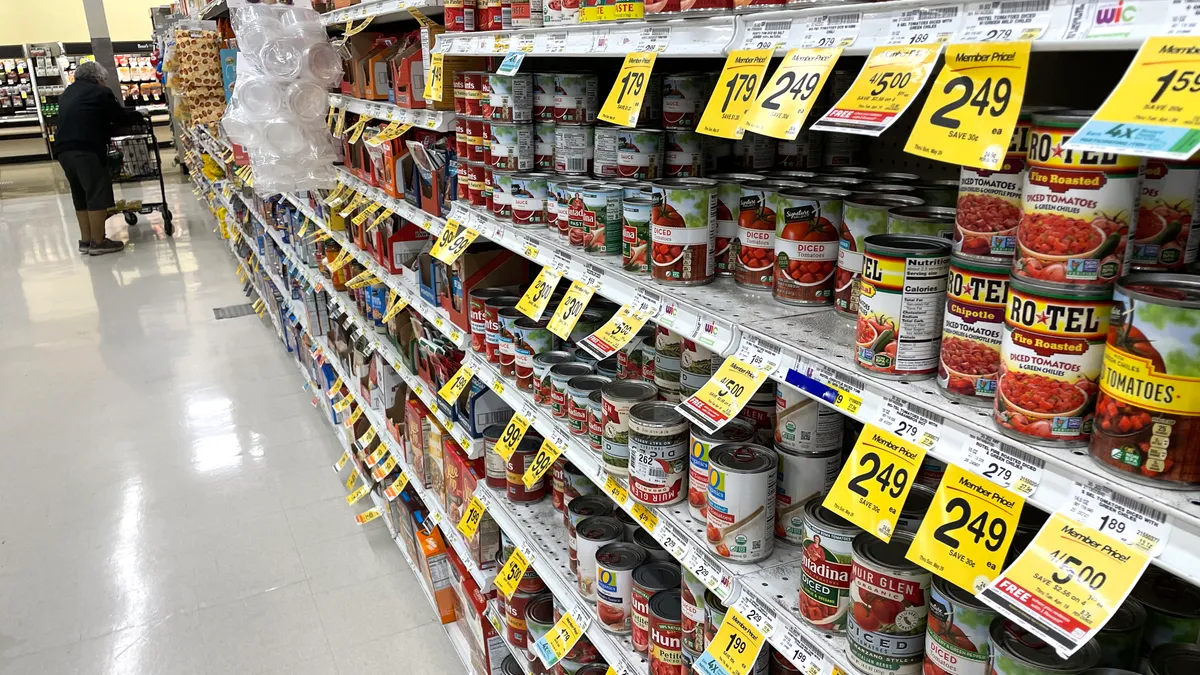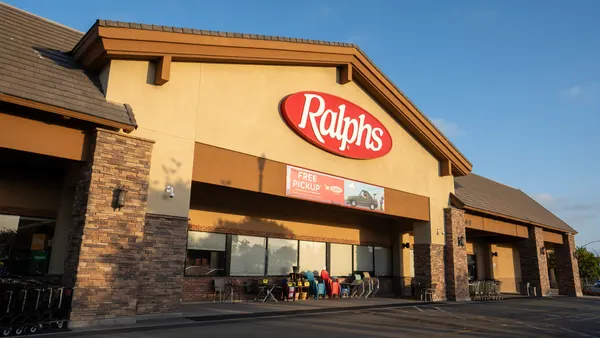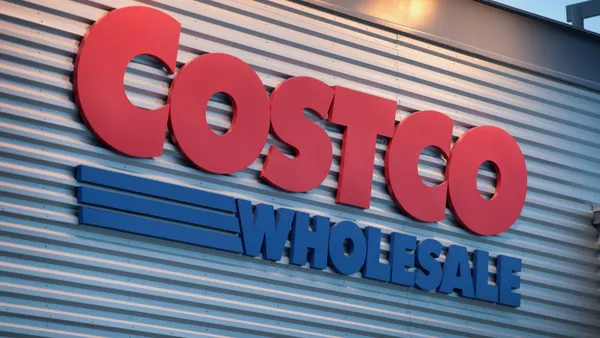Sen. Maggie Hassan has asked Albertsons, Kroger, Walmart, Costco and Dollar General for information about how increased tariffs the Trump administration has imposed on imported steel and aluminum could affect stores, suppliers and costs in the grocery supply chain.
In June 18 letters to the chief executives of the retailers, the New Hampshire senator requested details including how they expect tariffs on the metals — which doubled to 50% on June 4 — to impact the cost of private label products, particularly canned foods and frozen meals.
Hassan, the ranking member of Congress’ Joint Economic Committee, indicated that Democrats on the Republican-controlled panel are especially interested in how increases in metal prices could impact canned good costs. She asked the retailers for details about their costs, revenue and profit margins for their best-selling canned food and aluminum foil products over the past five quarters.
In addition, Hassan requested information about how customers who receive Supplemental Nutrition Assistance Program (SNAP) benefits shop for canned goods, including a breakdown of their purchases in terms of brand name and private label products. Hassan also said she wants an estimate of the number of jobs the retailers support in industries such as construction, food packaging and food processing.
“High grocery prices are a top economic concern for Americans, and experts state that tariffs could significantly increase the cost of canned foods,” Hassan wrote. “Experts have also noted potential impacts from tariffs on the costs of shelving, equipment, transportation, and other inputs that grocery stores and their suppliers need to operate, which, in turn, could also lead to higher food prices for customers.”
In the letters, Hassan cited data from the Consumer Brands Association indicating that the 50% levy on imported steel could push prices for canned foods up by between 9% and 15%. She also pointed to statistics showing that the U.S. imports almost 70% of the steel used for canned fruits and vegetables.
Hassan gave the retailers until July 9 to supply the information she requested.
Grocery prices rose at an annual rate of 2.2% in May, the Bureau of Labor Statistics reported June 11. By comparison, food-at-home inflation came in at 2% in April and 2.4% in March.













